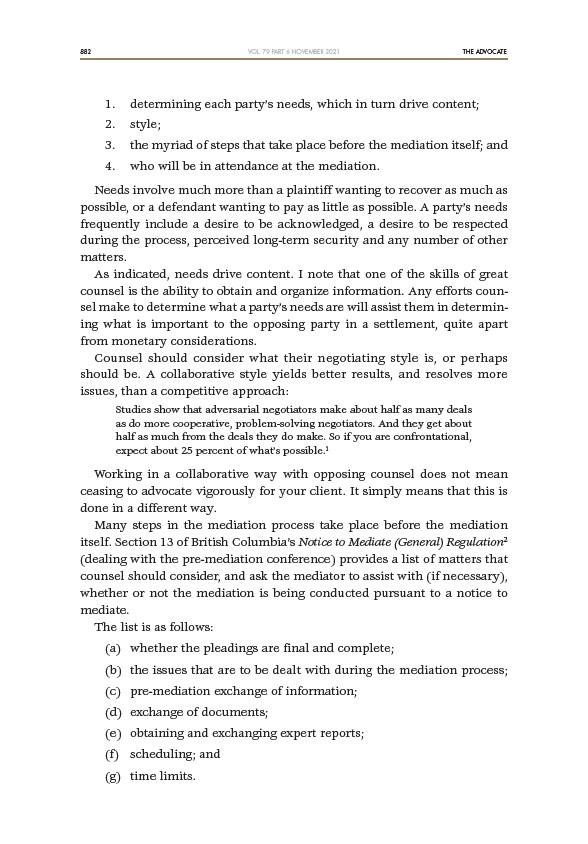
882 THE ADVOCATE
VOL. 79 PART 6 NOVEMBER 2021
1. determining each party’s needs, which in turn drive content;
2. style;
3. the myriad of steps that take place before the mediation itself; and
4. who will be in attendance at the mediation.
Needs involve much more than a plaintiff wanting to recover as much as
possible, or a defendant wanting to pay as little as possible. A party’s needs
frequently include a desire to be acknowledged, a desire to be respected
during the process, perceived long-term security and any number of other
matters.
As indicated, needs drive content. I note that one of the skills of great
counsel is the ability to obtain and organize information. Any efforts counsel
make to determine what a party’s needs are will assist them in determining
what is important to the opposing party in a settlement, quite apart
from monetary considerations.
Counsel should consider what their negotiating style is, or perhaps
should be. A collaborative style yields better results, and resolves more
issues, than a competitive approach:
Studies show that adversarial negotiators make about half as many deals
as do more cooperative, problem-solving negotiators. And they get about
half as much from the deals they do make. So if you are confrontational,
expect about 25 percent of what’s possible.1
Working in a collaborative way with opposing counsel does not mean
ceasing to advocate vigorously for your client. It simply means that this is
done in a different way.
Many steps in the mediation process take place before the mediation
itself. Section 13 of British Columbia’s Notice to Mediate (General) Regulation2
(dealing with the pre-mediation conference) provides a list of matters that
counsel should consider, and ask the mediator to assist with (if necessary),
whether or not the mediation is being conducted pursuant to a notice to
mediate.
The list is as follows:
(a) whether the pleadings are final and complete;
(b) the issues that are to be dealt with during the mediation process;
(c) pre-mediation exchange of information;
(d) exchange of documents;
(e) obtaining and exchanging expert reports;
(f) scheduling; and
(g) time limits.